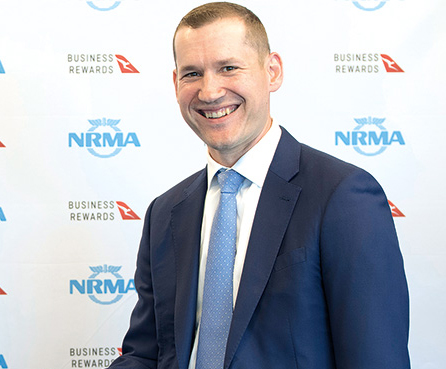There have clearly been a lot of crisis meetings going on within Qantas as the carrier endures an ongoing wave of bad publicity about declining service standards. Perhaps providing a welcome respite for the beleaguered cruising community, the sights of Australia’s mainstream media muckrakers have turned firmly towards aviation, as news directors, desperate to fill an hour of programming each evening, now regularly deploy their camera crews to airports in the hope of capturing some miserably queuing passengers complaining about the dire situation of a sector under pressure.
Qantas has borne much of the opprobium, although the restart pains of the industry are absolutely not limited to its operations – indeed having travelled in the US recently I can testify that delays, lost baggage and missed connections are currently simply a fact of life. However to its credit the carrier is making changes to improve the situation – not least the quite revolutionary decision to increase its formal Minimum Connecting Time (MCT) between domestic and international flights at Sydney and Melbourne airports to 90 minutes.
On top of that there’s been the widely reported move asking Qantas senior executives to volunteer to be rostered on as baggage handlers – a practice which I understand has actually been under way for some months now.
[On that subject, Ryanair CEO Michael O’Leary was recently spotted working at a security checkpoint at Dublin Airport, prompting questions of whether his fellow Irishman Alan Joyce might pop-up somewhere in a similar situation!]
The change to a 90-minute MCT is quite a big deal, because it has significant flow-on effects confirmed by the carrier’s Executive Manager of Global Sales and Distribution, Igor Kwiatkowski, who told travel agencies the move would “help make sure your customer and their bags have time to make their international flight”. The new longer connection time may also mean some customers are forced to overnight in Sydney or Melbourne as a result of changes to their Qantas Australian domestic sector, he noted. “As per the commercial policy you can rebook customers on alternative services to avoid the overnight stay, or Qantas will cover the cost of the accommodation,” he promised.

The sticking point, of course, is that accommodation which is necessitated by the change must be pre-booked through the Qantas contact centre – a daunting prospect for any travel consultant who has spent much of their life waiting on the phone in interminable queues to the airline in recent months. Kwiatkowski confirmed that Qantas was also working with its partner carriers on whether similar changes to the current MCTs of international airlines operating out of Sydney and Melbourne need to be made – perhaps opening a can of worms for other carriers as to whether they would cover the accommodation costs necessitated by such a move.
On top of that, of course there’s absolutely no thought from Qantas of remunerating travel advisors for the time they will take in dealing with these new requirements – an issue raised by several travelBulletin readers. While managing disruptions is part of what the industry rightly prides itself on, this is yet another situation exposing the marginal viability of some travel agency business models, which have over the years endured death by a thousand cuts as they are expected to increasingly do more for airlines in looking after their mutual clients, at the same time receiving ever-reducing remuneration for their pains..
Looking at the big picture, it’s clearly good for the whole industry if Qantas can get its act together and stop travel pain from appearing as the lead story on the news each evening. As Kwiatkowski wrote, “we hope that by processing these changes, your customers will feel confident that Qantas will get them where they want to go, on time and with their bags”.
And optimists may even suggest that the airline’s seemingly firm anti-agent stance may perhaps be softened a little as executives’ eyes are opened just a little bit more (as they drive luggage carts across the tarmac) to how much they rely on their so-called “agency partners”. Hope springs eternal.








